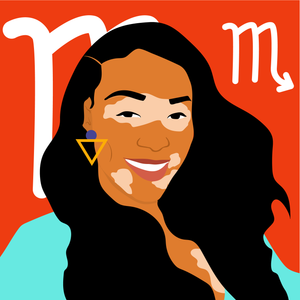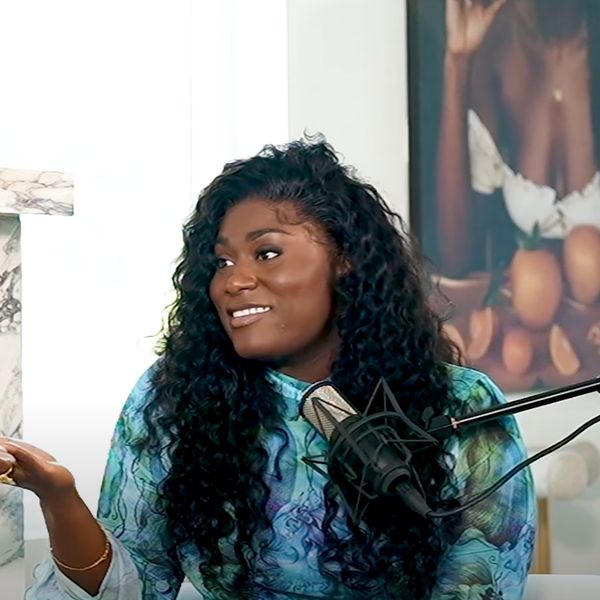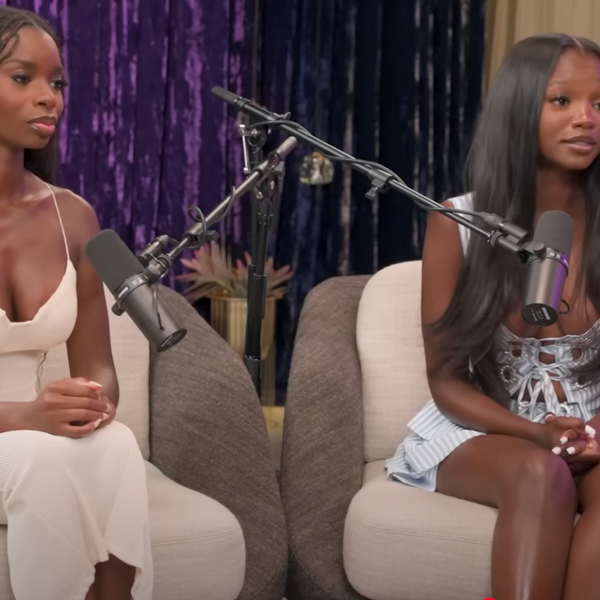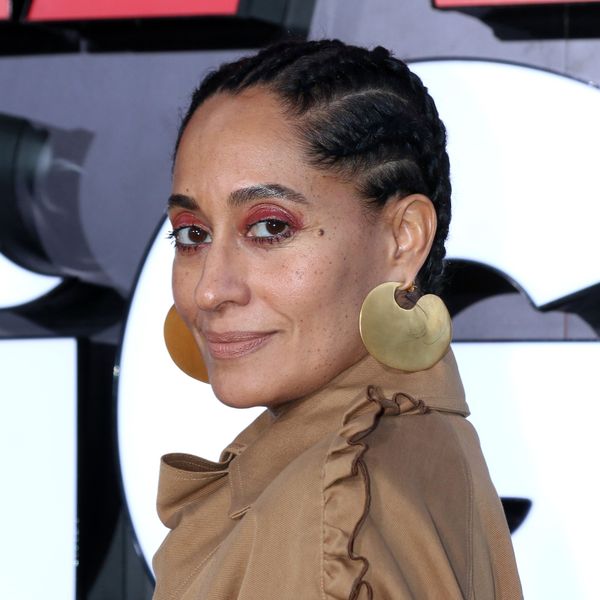Drake Gives Honest Answer To Why He Won’t Be Getting Married Anytime Soon, And We Can Respect It

Rapper, singer, and actor Aubrey "Drake" Graham candidly opened up about his future plans, revealing his thoughts on marriage and whether he envisions settling down with a fellow celebrity.
The 36-year-old may have gained professional success after dominating the music charts with his catchy tunes for over a decade following his departure from the Canadian hit series Degrassi: The Next Generation. Still, Graham's personal life is an entirely different story.
Over the years, Graham has been romantically linked to Rihanna, SZA, and Serena Williams, to name a few. Although those alleged relationships didn't work out, the "God's Plan" emcee welcomed a son, Adonis Graham, in 2017 with former model and artist Sophie Brussaux.
Drake Reveals Why He Hasn't Gotten Married
In a July interview on Bobbi Althoff's The Really Good Podcast, Graham explains why he isn't a perfect suitor for marriage and isn't interested in being with a celebrity despite his past high-profile relationships.
Drake On Marriage
In the discussion, the "Over" lyricist disclosed that he feels he wouldn't be an ideal partner for marriage because of his busy schedule.
"I don't know. I don't think I could offer somebody what they'd be looking for," he told Althoff. "Just consistency. My work is my priority. I wouldn't want to not be able to contribute as a partner."
Further into the interview, Graham added that he is also reluctant to get married because he doesn't want to disappoint anybody.
"I don't want to get married because, like, I just don't want to disappoint someone," the "Fancy" rapper said.
Drake On Not Marrying A Celebrity
As the topic shifted to the type of woman Graham would marry, the star shared that he would prefer a noncelebrity over a famous person because he finds them more intriguing.
"I probably will end up marrying somebody that's not famous," he stated, "Famous people aren't that anything. They're not that intriguing."
In light of Graham's recent admission on relationships and marriage, xoNecole looks back at his former romances.
Who Has Drake Dated?
Keep scrolling for a brief timeline of the women Drake has dated:
Keshia Chanté
Although the exact timeline of when former 106 & Park host Keshia Chanté dated Graham is unclear, new outlets report that the pair's romance occurred in the early 2000s when they were both teenagers.
Despite their relationship ending, it appeared that Chanté left a mark in Graham's life because years later, in 2022, the emcee revealed that she was the "Kiki" inspiration behind his hit song "In My Feelings" during OVO Fest as he introduced her onstage and mentioned the activities the pair would partake in, which is highly referenced in the track.
"This next person coming to the stage, I used to get in my mom's car, and I used to drive all the way to the west for this one right here, you feel me? So, I have to personally introduce her," he said. "This is my first girlfriend I ever had in my life. A real legend, somebody I love with all of my heart. Make some noise for Keisha Chanté.”
SZA
Following his split with Chanté, Drake was reportedly linked to singer Solána "SZA" Rowe around 2008 or 2009, depending on whose version of events you believe.
At the time, Rowe wasn't widely known. On the other hand, Graham gained notoriety following his mixtape So Far Gone, featuring the hit singles "Best I Ever Had" and "Successful." Although it is unclear how long they were together, the rapper mentioned his romance with Rowe in 2021's "Mr. Right Now."
"Yeah, said she wanna f--k to some SZA, wait. 'Cause I used to date SZA back in '08," he said.
After the track's release, Rowe took to Twitter to clarify a few things, including the former couple's dating timeline.
"So It was actually 2009 lol ... in this case, a year of poetic rap license mattered lol," she wrote. "I think he just innocently rhymed 08 [with] wait. Anybody who really knows me and was around during this time can confirm ... it's all love all peace."
The following year in December 2022, Rowe opened up in an interview with Audacy about where she stands with Graham, their past relationship, and why she isn't fazed by being name-dropped in any of his songs.
"We're cool. We've always been cool. It's never been weird," she said. "Anytime he's ever mentioned me, it's always been positive. He never said anything negative about me, and I'm grateful for that. I think really highly of him… I'm an artist now, I wasn't then, and he's King Drake!"
Rihanna
Graham's most notable relationship to date has been with singer and entrepreneur Robyn "Rihanna" Fenty.
The couple began dating in 2009, years after Graham appeared as an extra on Fenty's music video "Pon De Replay." Despite their chemistry, Graham and Fenty's romance wouldn't last long because, by 2010, the lyricist revealed to The New York Times that he felt like "a pawn" in their relationship.
“I was a pawn," he stated. "You know what she was doing to me? She was doing exactly what I've done to so many women throughout my life, which is show them quality time, then disappear. I was like, 'Wow, this feels terrible.'"
Shortly after that comment, Graham and Fenty would reunite that same year. However, their reunion was short-lived again because, in 2011, Fenty and Graham broke up for a second time. The following year, Fenty rekindled her relationship with her ex Chris Brown.
By 2016, all appeared to be going well with Fenty and Graham because the longtime musical collaborators released their hit song "Work." At the same time, Graham professed his love for Fenty when he presented her with the 2016 MTV Vanguard Award. Although it appeared Fenty and Graham would take the next step in their relationship following the public admiration from both parties, it sadly wouldn't last because, by 2017, they had broken up for the final time.
In a 2018 interview with Vogue, Fenty opened up about her nearly decade-long romance with Graham and where the pair stood after their final split.
"We don't have a friendship now, but we're not enemies either," she said. "It is what it is."
Since then, Fenty has moved on with rapper Rakim "A$AP Rocky" Mayers. The pair welcomed a son RZA Mayers in 2022 and are currently expecting their second child.
Serena Williams
During Graham's on-and-off relationship with Fenty, the "Hotline Bling" emcee was romantically linked to legendary tennis player Serena Williams in 2011 after he was seen attending one of her matches and shared a telling tweet online.
"@SerenaWilliams I cannot wait to put it on you and make you sweat……. during our match this weekend," he wrote.
Although neither party confirmed the romance, Graham and Williams appeared to be heating up when he mentioned her in his song "Worst Behavior" and later threw jabs at her ex, Common.
Although both men ultimately settled the feud, which was allegedly over Williams, dating rumors continued to follow the alleged couple when Graham kept attending the tennis player's games, and they were spotted making out in various locations.
But by 2015, Williams and Graham's alleged relationship would be over. Williams has since settled down with businessman Alexis Ohanian. The couple share a daughter, Alexis Olympia, and are expecting their second child.
Jennifer Lopez
In December 2016, actress and singer Jennifer Lopez and Graham ignited dating rumors after they shared an intimate photo of the pair cuddling on Instagram.
Although, at the time, it was reported that Graham and Lopez were professionally working together, a source told People magazine that they greatly respect each other and their friends are hopeful it could lead to a blossoming relationship.
"They seem to really like and respect each other, but it's early," they said. "Where it goes, we shall see. Friends of them both are hoping it becomes something, but it's too early to say more than that."
A short time later, another insider revealed that Lopez was "smitten" with Graham and enjoyed "spending time with him." The alleged couple's romance continued well into the New Year when Lopez was seen sporting a Tiffany necklace, reportedly worth $100,000, that Graham gave her. The duo allegedly continued dating for a while, and during that time, it was revealed to the public that Graham met Lopez's children.
But unfortunately, by February 2017, Lopez and Graham's brief union ended. Since then, Lopez has married actor Ben Affleck.
Let’s make things inbox official! Sign up for the xoNecole newsletter for daily love, wellness, career, and exclusive content delivered straight to your inbox.
Feature image by Prince Williams/Wireimage
Because We Are Still IT, Girl: It Girl 100 Returns
Last year, when our xoNecole team dropped our inaugural It Girl 100 honoree list, the world felt, ahem, a bit brighter.
It was March 2024, and we still had a Black woman as the Vice President of the United States. DEI rollbacks weren’t being tossed around like confetti. And more than 300,000 Black women were still gainfully employed in the workforce.
Though that was just nineteen months ago, things were different. Perhaps the world then felt more receptive to our light as Black women.
At the time, we launched It Girl 100 to spotlight the huge motion we were making as dope, GenZennial Black women leaving our mark on culture. The girls were on the rise, flourishing, drinking their water, minding their business, leading companies, and learning to do it all softly, in rest. We wanted to celebrate that momentum—because we love that for us.
So, we handpicked one hundred It Girls who embody that palpable It Factor moving through us as young Black women, the kind of motion lighting up the world both IRL and across the internet.
It Girl 100 became xoNecole’s most successful program, with the hashtag organically reaching more than forty million impressions on Instagram in just twenty-four hours. Yes, it caught on like wildfire because we celebrated some of the most brilliant and influential GenZennial women of color setting trends and shaping culture. But more than that, it resonated because the women we celebrated felt seen.
Many were already known in their industries for keeping this generation fly and lit, but rarely received recognition or flowers. It Girl 100 became a safe space to be uplifted, and for us as Black women to bask in what felt like an era of our brilliance, beauty, and boundless influence on full display.
And then, almost overnight, it was as if the rug was pulled from under us as Black women, as the It Girls of the world.
Our much-needed, much-deserved season of ease and soft living quickly metamorphosed into a time of self-preservation and survival. Our motion and economic progression seemed strategically slowed, our light under siege.
The air feels heavier now. The headlines colder. Our Black girl magic is being picked apart and politicized for simply existing.
With that climate shift, as we prepare to launch our second annual It Girl 100 honoree list, our team has had to dig deep on the purpose and intention behind this year’s list. Knowing the spirit of It Girl 100 is about motion, sauce, strides, and progression, how do we celebrate amid uncertainty and collective grief when the juice feels like it is being squeezed out of us?
As we wrestled with that question, we were reminded that this tension isn’t new. Black women have always had to find joy in the midst of struggle, to create light even in the darkest corners. We have carried the weight of scrutiny for generations, expected to be strong, to serve, to smile through the sting. But this moment feels different. It feels deeply personal.
We are living at the intersection of liberation and backlash. We are learning to take off our capes, to say no when we are tired, to embrace softness without apology.
And somehow, the world has found new ways to punish us for it.

In lifestyle, women like Kayla Nicole and Ayesha Curry have been ridiculed for daring to choose themselves. Tracee Ellis Ross was labeled bitter for speaking her truth about love. Meghan Markle, still, cannot breathe without critique.
In politics, Kamala Harris, Letitia James, and Jasmine Crockett are dragged through the mud for standing tall in rooms not built for them.
In sports, Angel Reese, Coco Gauff, and Taylor Townsend have been reminded that even excellence will not shield you from racism or judgment.

In business, visionaries like Diarrha N’Diaye-Mbaye and Melissa Butler are fighting to keep their dreams alive in an economy that too often forgets us first.
Even our icons, Beyoncé, Serena, and SZA, have faced criticism simply for evolving beyond the boxes society tried to keep them in.
From everyday women to cultural phenoms, the pattern is the same. Our light is being tested.

And yet, somehow, through it all, we are still showing up as that girl, and that deserves to be celebrated.
Because while the world debates our worth, we keep raising our value. And that proof is all around us.
This year alone, Naomi Osaka returned from motherhood and mental health challenges to reach the semifinals of the US Open. A’ja Wilson claimed another MVP, reminding us that beauty and dominance can coexist. Brandy and Monica are snatching our edges on tour. Kahlana Barfield Brown sold out her new line in the face of a retailer that had been canceled. And Melissa Butler’s company, The Lip Bar, is projecting a forty percent surge in sales.

We are no longer defining strength by how much pain we can endure. We are defining it by the unbreakable light we continue to radiate.
We are the women walking our daily steps and also continuing to run solid businesses. We are growing in love, taking solo trips, laughing until it hurts, raising babies and ideas, drinking our green juice, and praying our peace back into existence.
We are rediscovering the joy of rest and realizing that softness is not weakness, it is strategy.
And through it all, we continue to lift one another. Emma Grede is creating seats at the table. Valeisha Butterfield has started a fund for jobless Black women. Arian Simone is leading in media with fearless conviction. We are pouring into each other in ways the world rarely sees but always feels.

So yes, we are in the midst of societal warfare. Yes, we are being tested. Yes, we are facing economic strain, political targeting, and public scrutiny. But even war cannot dim a light that is divinely ours.
And we are still shining.
And we are still softening.
And we are still creating.
And we are still It.

That is the quiet magic of Black womanhood, our ability to hold both truth and triumph in the same breath, to say yes, and to life’s contradictions.
It is no coincidence that this year, as SheaMoisture embraces the message “Yes, And,” they stand beside us as partners in celebrating this class of It Girls. Because that phrase, those two simple words, capture the very essence of this moment.
Yes, we are tired. And we are still rising.
Yes, we are questioned. And we are the answer.
Yes, we are bruised. And we are still beautiful.

This year’s It Girl 100 is more than a list. It is a love letter to every Black woman who dares to live out loud in a world that would rather she whisper. This year’s class is living proof of “Yes, And,” women who are finding ways to thrive and to heal, to build and to rest, to lead and to love, all at once.
It is proof that our joy is not naive, our success not accidental. It is the reminder that our light has never needed permission.
So without further ado, we celebrate the It Girl 100 Class of 2025–2026.
We celebrate the millions of us who keep doing it with grace, grit, and glory.
Because despite it all, we still shine.
Because we are still her.
Because we are still IT, girl.
Meet all 100 women shaping culture in the It Girl 100 Class of 2025. View the complete list of honorees here.
Featured image by xoStaff
Exclusive: Viral It Girl Kayla Nicole Is Reclaiming The Mic—And The Narrative
It’s nice to have a podcast when you’re constantly trending online. One week after setting timelines ablaze on Halloween, Kayla Nicole released an episode of her Dear Media pop culture podcast, The Pre-Game, where she took listeners behind the scenes of her viral costume.
The 34-year-old had been torn between dressing up as Beyoncé or Toni Braxton, she says in the episode. She couldn’t decide which version of Bey she’d be, though. Two days before the holiday, she locked in her choice, filming a short recreation of Braxton’s “He Wasn’t Man Enough for Me” music video that has since garnered nearly 6.5M views on TikTok.
Kayla Nicole says she wore a dress that was once worn by Braxton herself for the Halloween costume. “It’s not a secret Toni is more on the petite side. I’m obsessed with all 5’2” of her,” she tells xoNecole via email. “But I’m 5’10'' and not missing any meals, honey, so to my surprise, when I got the dress and it actually fit, I knew it was destiny.”
The episode was the perfect way for the multihyphenate to take control of her own narrative. By addressing the viral moment on her own platform, she was able to stir the conversation and keep the focus on her adoration for Braxton, an artist she says she grew up listening to and who still makes her most-played playlist every year. Elsewhere, she likely would’ve received questions about whether or not the costume was a subliminal aimed at her ex-boyfriend and his pop star fiancée. “I think that people will try to project their own narratives, right?” she said, hinting at this in the episode. “But, for me personally – I think it’s very important to say this in this moment – I’m not in the business of tearing other women down. I’m in the business of celebrating them.”
Kayla Nicole is among xoNecole’s It Girl 100 Class of 2025, powered by SheaMoisture, recognized in the Viral Voices category for her work in media and the trends she sets on our timelines, all while prioritizing her own mental and physical health. As she puts it: “Yes, I’m curating conversations on my podcast The Pre-Game, and cultivating community with my wellness brand Tribe Therepē.”
Despite being the frequent topic of conversation online, Kayla Nicole says she’s learning to take advantage of her growing social media platform without becoming consumed by it. “I refuse to let the internet consume me. It’s supposed to be a resource and tool for connection, so if it becomes anything beyond that I will log out,” she says.
On The Pre-Game, which launched earlier this year, she has positioned herself as listeners “homegirl.” “There’s definitely a delicate dance between being genuine and oversharing, and I’ve had to learn that the hard way. Now I share from a place of reflection, not reaction,” she says. “If it can help someone feel seen or less alone, I’ll talk about it within reason. But I’ve certainly learned to protect parts of my life that I cherish most. I share what serves connection but doesn’t cost me peace.
"I refuse to let the internet consume me. It’s supposed to be a resource and tool for connection, so if it becomes anything beyond that I will log out."

Credit: Malcolm Roberson
Throughout each episode, she sips a cocktail and addresses trending topics (even when they involve herself). It’s a platform the Pepperdine University alumnus has been preparing to have since she graduated with a degree in broadcast journalism, with a concentration in political science.
“I just knew I was going to end up on a local news network at the head anchor table, breaking high speed chases, and tossing it to the weather girl,” she says. Instead, she ended up working as an assistant at TMZ before covering sports as a freelance reporter. (She’s said she didn’t work for ESPN, despite previous reports saying otherwise.) The Pre-Game combines her love for pop culture and sports in a way that once felt inaccessible to her in traditional media.
She’s not just a podcaster, though. When she’s not behind the mic, taking acting classes or making her New York Fashion Week debut, Kayla Nicole is also busy elevating her wellness brand Tribe Therepē, where she shares her workouts and the workout equipment that helps her look chic while staying fit. She says the brand will add apparel to its line up in early 2026.
“Tribe Therepē has evolved into exactly what I have always envisioned. A community of women who care about being fit not just for the aesthetic, but for their mental and emotional well-being too. It’s grounded. It’s feminine. It’s strong,” she says. “And honestly, it's a reflection of where I am in my life right now. I feel so damn good - mentally, emotionally, and physically. And I am grateful to be in a space where I can pour that love and light back into the community that continues to pour into me.”
Tap into the full It Girl 100 Class of 2025 and meet all the women changing game this year and beyond. See the full list here.
Featured image by Malcolm Roberson









